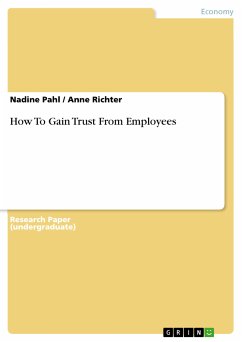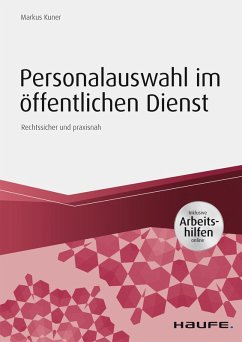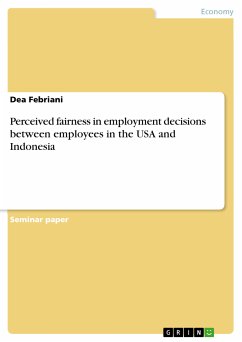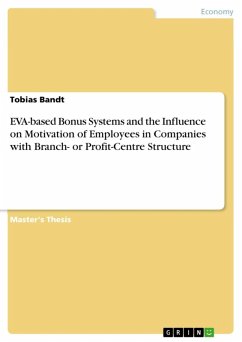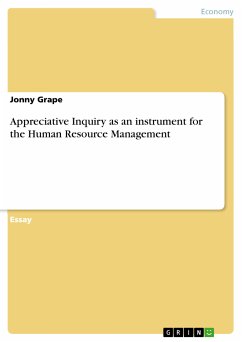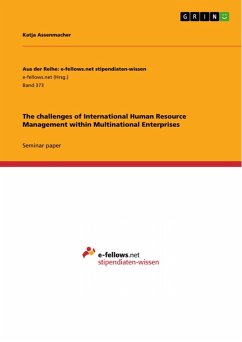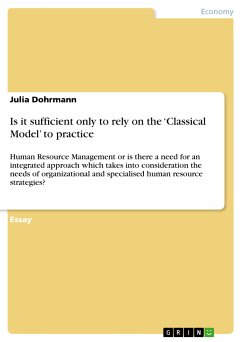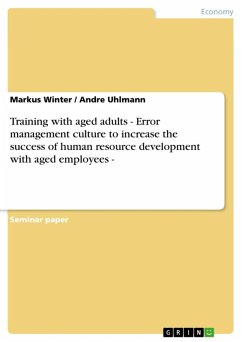
Training with aged adults - Error management culture to increase the success of human resource development with aged employees - (eBook, ePUB)

PAYBACK Punkte
0 °P sammeln!
Seminar paper from the year 2011 in the subject Leadership and Human Resources - Miscellaneous, grade: 2,7, Technical University of Chemnitz (Fakultät für Wirtschaftswissenschaften), course: HRM-Research, language: English, abstract: Particularly today, company¿s environment is characterized by complexity and dynamic. There hardly are assured expectations but decisions within insecurity increase. That demands a lifelong learning from all social actors. The most popular form of formal learning in companies is advanced trainings. However, a look at the statistics of those trainings show that ...
Seminar paper from the year 2011 in the subject Leadership and Human Resources - Miscellaneous, grade: 2,7, Technical University of Chemnitz (Fakultät für Wirtschaftswissenschaften), course: HRM-Research, language: English, abstract: Particularly today, company¿s environment is characterized by complexity and dynamic. There hardly are assured expectations but decisions within insecurity increase. That demands a lifelong learning from all social actors. The most popular form of formal learning in companies is advanced trainings. However, a look at the statistics of those trainings show that the participant rate declines with age. Faced with demographic change, the group of over 40 years old employees will increase in the future. For example, over 50 percent of employees in the United States will be over 40 by the year 2012 (Carter/Beier 2010, pp.642) - a hard challenge for effective human resource development. The present term paper in the line with the seminar "HRM-Research" with the title "Training with aged adults - Error management culture to increase the success of human resource methods with aged employees" concentrates on error management within human resource development especially advanced training. The aim of that term paper is to show how far error management culture can increase the success of human resource development methods with aged employees. In that context success means the transfer in the work life. Based on those results, implications for human resource development practice are conveyed. To answer this question, the following procedure was chosen. First of all it is necessary to present basic information about human resource development and error management respectively error management culture. After working out the differences between younger and older learners with the help of cognitive ability, self-regulation and motivation to learn, the empirical work of Carter and Beier with the title "The effectiveness of error management training with aged adults" is mentioned. As said above, implications based on the results of the term paper are followed then. In the end the results are summarized and a conclusion is formulated.
Dieser Download kann aus rechtlichen Gründen nur mit Rechnungsadresse in A, B, BG, CY, CZ, D, DK, EW, E, FIN, F, GR, HR, H, IRL, I, LT, L, LR, M, NL, PL, P, R, S, SLO, SK ausgeliefert werden.




